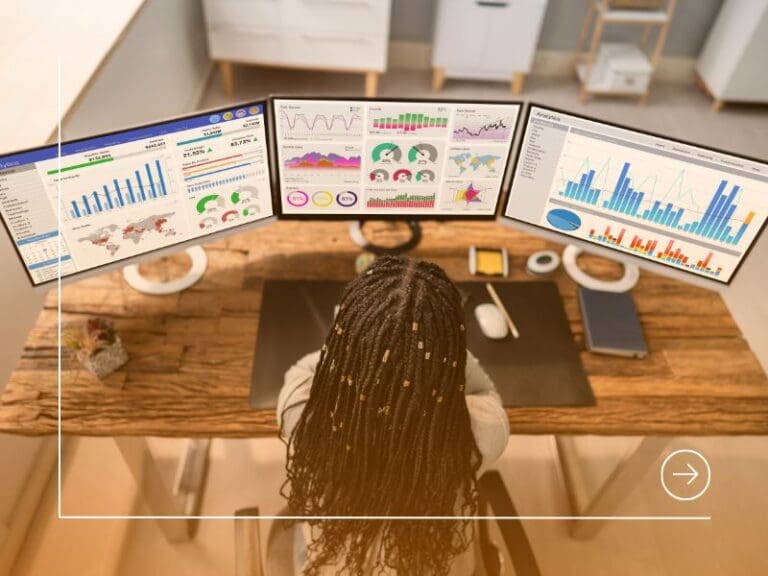How did you get into tech?
I always really liked maths throughout school, especially applying theorems and formulas to solve problems. I also enjoyed playing computer games with friends during my childhood. Going into Software Engineering seemed like a good choice.
What is it about tech that you love?
What I learned during my early years as a software engineer – and love the most about tech – is how important creativity and collaboration are for our job. Maximizing Your Awards Entry: Women in Tech Self-Nominations can highlight the significance of these aspects in professional growth. I love bouncing ideas back and forth and solving new technical problems with colleagues from all over the world. I love when the best ideas come from brainstorming and discussion among different people, when everyone builds on what the previous person just said to make the proposed ideas even better.
What role do you think men have in creating a more inclusive tech industry?
I am mindful that ‘male’ and ‘female’ are binary terms. While I appreciate that this question is about male allies, I want to be thoughtful and recognise that society isn’t binary. I think all men can have a huge role in creating a more inclusive tech industry.
I still see that the drive to make changes that will help everyone feel included comes disproportionately from women, underrepresented ethnicities, LGBTQ+ people and others, and in too small numbers from cisgender white men.
In tech, straight white men like me are the majority and almost all positions of high influence within tech companies are held by them. Compared to men, underrepresented groups get less support and advocacy.
I really think there’s room for many of us with different skill sets and passions to mentor and coach individuals, give them candid feedback to help them grow, and proactively find their next opportunities for growth.
The last one in particular is crucial and really moves the needle. We need to act as sponsors for all the great individuals in our workplaces. It’s also important for us to share our personal stories with other men to encourage them to get involved, as well as to form diverse groups of people and ask them to propose improvements to the level of inclusion within our companies.
You’ve been highlighted as a great example of an ally and mentor to women in tech. Is this something that has come naturally to you, or have you been inspired and encouraged by others?
When I hear that from individuals I’ve helped, those become some of my happiest days at work. It makes me feel very lucky to be a manager in our industry. In my career, I had some people who helped me a lot and I consider them great allies for me. I was very lucky that one of them was one of my managers in Bloomberg who really advocated for me to have increasingly larger responsibilities, often even before I felt I had earned them.
What do you believe to be the benefits of encouraging and supporting women in tech?
I think Tech and other industries need the diversity of thought, approaches and experience from as many different people as possible. Today we are missing out on the creativity and passion of a lot of great people who think: “That is not for me. I don’t want to be part of that. I don’t belong here.”
I have managed and observed teams where women – as well as other underrepresented groups – gradually felt more empowered to influence the culture and ways of working of the team. I’ve seen those teams adopt approaches to build consensus and reach effective decisions in ways that allow everyone to give their best contribution. As a result, those teams have also become extremely autonomous and more resilient, therefore needing much less external help.
That benefited everyone greatly. I’ve seen everyone on those teams embrace the change and thrive within the more inclusive environment (e.g., voicing their opinion more in meetings).
ANY OTHER MALE ALLIES YOU’D LIKE TO SHINE A LIGHT ON?
Two people that stand out to me in terms of being great allies are Laurent Romieaux and Zahir Hussein. I really appreciate how passionate Laurent is about helping everyone feel included and how he uses his position and influence as a senior manager to make the culture of our Engineering department more inclusive.
Zahir is also a great ally. I have spoken to multiple junior engineers at Bloomberg who talked very highly of him and how he helped, supported, and guided them through the challenges of the first few years of their careers in tech.
What tangible and actionable advice would you give to other men in tech to be better allies to women in tech?
If I had to pick one word, I would say focus. The quality of what I do drops when I try to do too many things in the same day or week. I think it’s important to dedicate focused time to being an ally.
First and foremost, time to educate ourselves about the experiences and struggles of people from underrepresented groups within tech, about the history of our society and how we ended up where we are, and about our own unconscious biases and white male privilege. We have to hold ourselves accountable to learn; the burden to teach and share shouldn’t be on underrepresented groups, it’s my role to upskill myself and my peers.
We should also dedicate high quality time with women and individuals from underrepresented groups. I personally find that one-to-one meetings are really powerful, to listen, learn, coach and support them. Every person is different and requires us to listen to their personal story and dreams. It’s okay to focus on one person at a time and make a positive impact for that person.
As a Team Lead, what is your biggest challenge to contributing to gender diversity in your team and in the broader workforce?
I think that the biggest challenge and also opportunity comes from how multi-dimensional people are. Data indicates that while progress has been made to increase the representation of white women in tech, women of colour have not benefited from the efforts made by companies. On a personal level, I try to constantly be aware and challenge my own biases – especially confirmation and similarity bias – and remind myself of the uniqueness of individual people in order to avoid making wrong assumptions and risking making people feel like tokens.
What do you believe companies should be doing to ensure they are more inclusive and therefore creating more diverse workplaces?
I think that everyone can help their companies become more inclusive. As a manager, I have benefited from having people in my team who pushed me to be more inclusive on certain occasions. Creating a culture where we all hold each other accountable and encourage one another to be more inclusive can be very effective and companies should reward people who speak up for one another. I also believe in the power of concrete examples. Companies should give visibility, showcase and celebrate those teams who are already practicing a high level of inclusion when running projects, making design decisions, giving growth opportunities to individuals, etc. I believe becoming more inclusive to everyone and more welcoming to people from underrepresented groups is very important for companies to be successful. For leaders, it’s a great opportunity to become more effective and inspiring leaders for the people in our workplaces.








